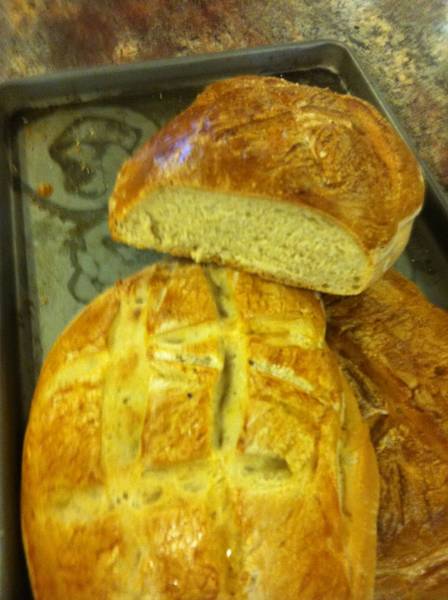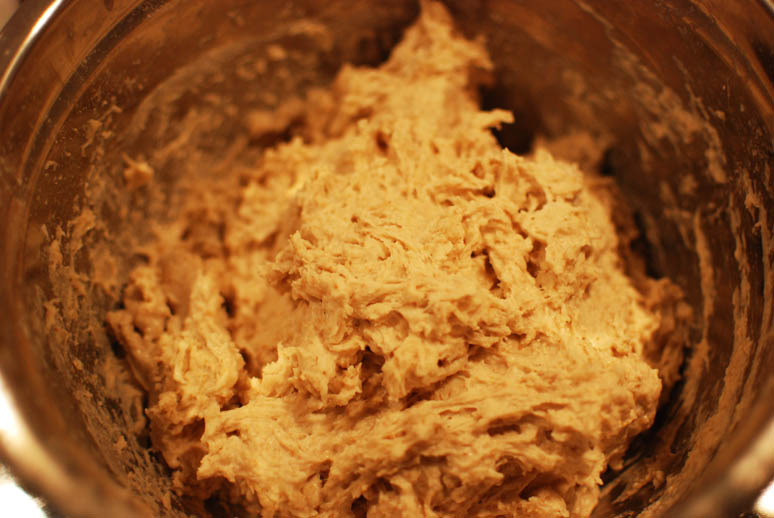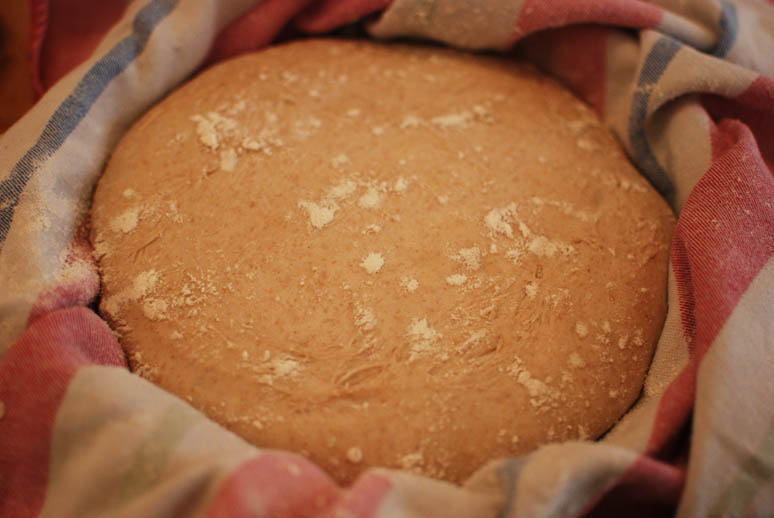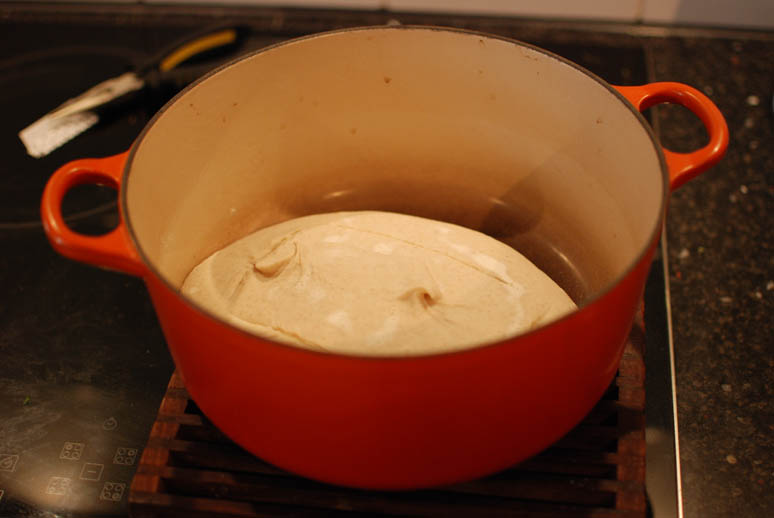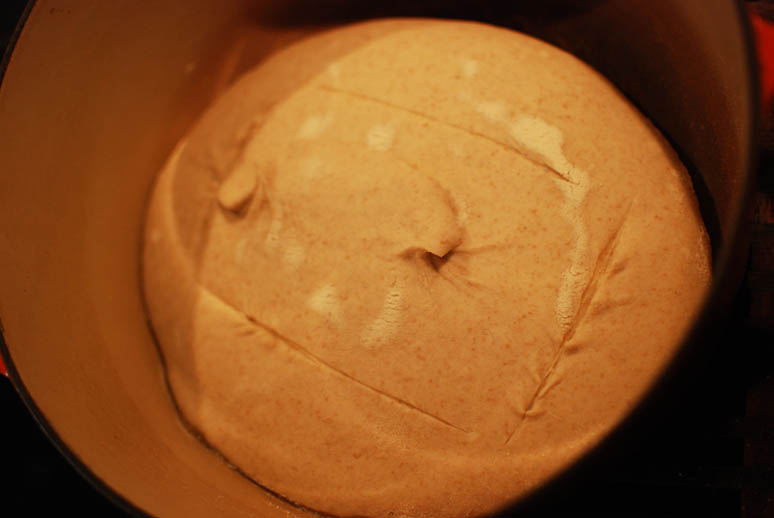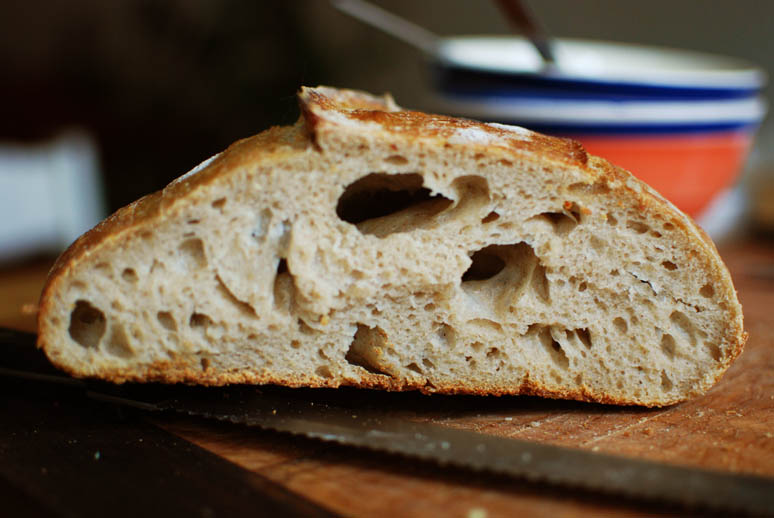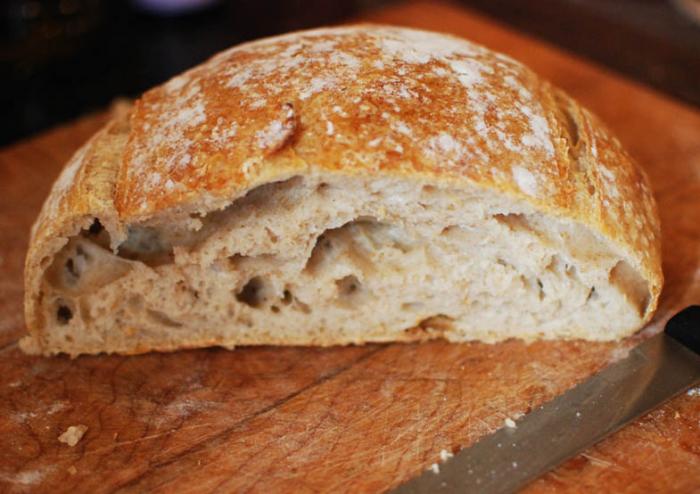for all interested,,,, MAKE THIS BREAD!! it came out amazing. i have to say that following a recipe from a really good baker helped quite a bit. i tried to follow the recipe mentioned above to a tee. ballsed it up in a few places but more or less got there in the end. i had a problem transferring the risen dough to the pot so it didn't quite rise up to its full potential, but it's still soft and airy in the middle and not at all dense. the taste is fantastic, a bit of sour and funk but not at all overwhelming, hints of that gueuze-y weirdness but with the strong crunchy malliard crust the flavor balance is very nice. two major points, you need to train up the starter for a week or so, don't skip this step! second, for the crisp hard crust you need either a real bread oven or a thick dutch oven style pot like the le creuset one in the pictures. this makes a super humid microenvironment needed for crust development.
get your starter going with bottle dregs, smack pack leftovers, natural bugs, what have you. persevere through the stink for a few days. after a few days, once it is foamy and smelly, throw away 3/4 or it and replenish with a handful of 50/50 white/whole wheat flour and enough water to make a thick batter. do this every day for a week or so, then make a big starter to rise overnight. the dough is 450g white 50g whole wheat flour 350ml water. mix and let rest. add 10g salt 25ml water, mix well and knead until smooth. let it rise 4 hours at room temp, turning and gently kneading every now and then. fold into a round; the author has a method for building up tension using the natural elasticity of the dough by stretching and folding under. final rise 4 hours or 12+ hours in the fridge, upside down in a basket lined with a towel dusted with flour. the dough shouldn't stick to the towel but mine did and deflated a bit when i tried to peel it away. pre-heat the pot in 250C oven, flip the risen loaf into the pot and cover, reduce heat to 225C. after 20 minutes remove the lid, cook another 25-35 minutes until it's golden brown. boom. pics are: 1. the overnight starter (called a leaven)
2. the float test to see if it's airy enough 3. dough before kneading 4. final rise 5. in the pot, scored with a razor


